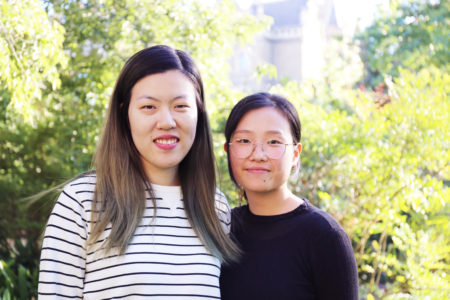Idil Ali knows the struggles of the silent minority. She sees it and lives it every day. It’s why she speaks for those who struggle to be heard.
By David Southwell
It took a few years for Idil Ali to find her performing voice but she soon discovered people will go out of their way to hear it.
Next month Idil, 22, will bring her spoken word artistry to Sacrededge, the annual celebration of “spirituality in diversity” run by Queenscliff Uniting Church.
Idil’s poetry flows from her strong identification with the predominantly Somali community she has belonged to in Carlton since 2004.
“I am very proud and blessed to be Somali, we have a beautiful community,” she says.
“A lot of my poetry is about home, is about identity, is about a community and the difficulties we sometimes face. Most importantly it’s about how we overcome.”
Idil’s poetry was originally intended only for the page but when she began publicly reading it aloud was a rhythmic revelation.
“I didn’t realise how important performing was,” she says.
“For me, writing was therapeutic. I never had any intention of performing. It was a real eye-opener.”
Idil said her poetry weaves together the personal and political.
“The bits about identity are inherently political because I am going to be talking about home and displacement and trying to navigate who we are in this landscape,” she says.
“I am going to talk about political things in the ways that ethnic communities are treated and sometimes the ways we treat each other.”
Idil does youth work mainly with east African and other minority groups living on housing estates in Carlton, North Melbourne and Kensington.
Having encountered intolerance and hostile stereotyping both personally and towards the youth she works with, Idil says that she does not identify as Victorian or Australian.
“I am surrounded in a micro-community that has supported me. It is difficult to feel accepted in a larger community that doesn’t actually accept you,” she said. “When we think about what is happening at Manus Island and Nauru the wider structures that are in place are not there to accept us.”
As the world grapples with the causes and in some cases the ugly fallout from the Christchurch mosque massacres, Idil says the way some politicians and media portray Muslims is dangerous.
She cited as an example the saturation coverage some media outlets gave to alleged African youth crime and the political exploitation of that leading up to the Victorian election.
“A lot of visibly Muslim women are fearful about how they will be treated in some public spaces,” she says.
At Sacrededge, Idil will be performing a mix of old and new pieces accompanied by her friend Yusuf on keyboard, which she promised would take the audience “on an adventure”.
Sacrededge Festival is held annually at Queenscliff Uniting Church.


